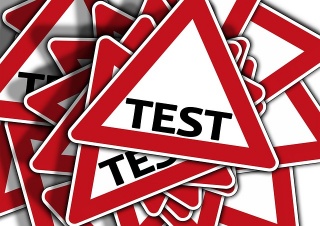The questions which follow provide a basic knowledge test of selected concepts covered in this learning pathway:
Copyright.
The questions published at the end of each learning pathway are re-used for the knowledge test for learners interested in earning a digital badge or certificate of participation for the Open education, copyright and open licensing in a digital world (LiDA103) micro-course. Please consult the Certify participation page for more information.
Indicate whether the following statements are true or false:
- You have the right to paraphrase text sourced from copyrighted works.
- True
- False
- Incorrect, paraphrasing is not making a verbatim ‘copy’ of the work protected under copyright.
- You can include a fact in a written work which is common knowledge without citing a reference.
- True
- False
- No, common knowledge, like the sum of 1 plus 2 equals 3, is not copyrightable.
- Copyright protects original ideas.
- True
- No, you can’t copyright ideas. It is the representation of ideas in a fixed form, for example a printed book, which is copyrighted.
- False
- You must affix the copyright symbol (©) before your works will be protected under copyright law
- True
- No. Copyright is automatic, it does not need to be registered or affixed with the copyright symbol to be protected.
- False
Multiple choice questions
- The legal ways a work can enter the public domain are: (Tick all correct options. There are 3 correct answers.)
- When the copyright expires
- Correct, a work enters the public domain after the copyright expires.
- When the copyright holder “dedicates” the work to the public domain
- Correct, a copyright holder can waive their rights by dedicating a work to the public domain.
- Orphan works where the original author cannot be determined
- No, the fact that an author cannot be determined is not sufficient for the work to enter the public domain - it’s still all rights reserved, assuming the copyright hasn’t expired.
- Author applies the CC Zero (CC0) mark to the work
- Yes, that’s right. This is one of the tools an author can use to dedicate a work to the public domain.
- The copyright term that best describes the transfer of rights where the original owner retains control of the rights is: (There is one (1) correct answer.)
- Assignment
- Licensing
- Yes, this describes the transfer of rights without changing the copyright holder.
- Contracting
- No, while a contract can be used to determine or change copyright, this is not the term generally used for the transfer of rights.
- Allocation
- The duration of copyright for an author’s work is normally calculated as follows: (There is one (1) correct answer.)
- Specified number of years from date of publication, in accordance with the relevant national copyright act
- Incorrect. Date of publication is not used to determine the duration of copyright
- Author’s life plus specified number of years, in accordance with the relevant national copyright act
- Correct, in the case of a natural person, duration is determined by adding the specified number of years after the author has died.
- Specified number of years from date of publication, in accordance with the Berne Convention
- Incorrect, while the Berne convention recommends the minimum duration of copyright, it is the Copyright Act of the country concerned that determines duration.
- Author’s life plus specified number of years, in accordance with the Berne Convention
- No, it is the country’s Copyright Act that determines duration of copyright.
- The Copyright Act of your country provides safeguards from which of the following? (Tick all options which apply. There are 4 correct answers.)
- Reproduction of the copyrighted work
- Inventions based on ideas published in the copyrighted work
- No, inventions are usually protected by patents.
- Public performance of the copyrighted work
- Adaptations based on the copyrighted work (derivative works)
- Public transmission of sound recordings
- Yes, this is also protected.
